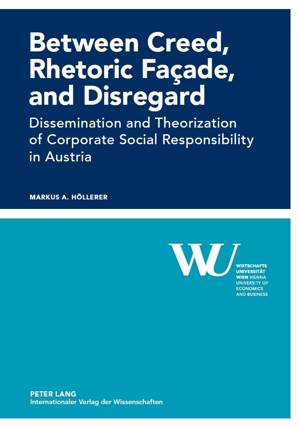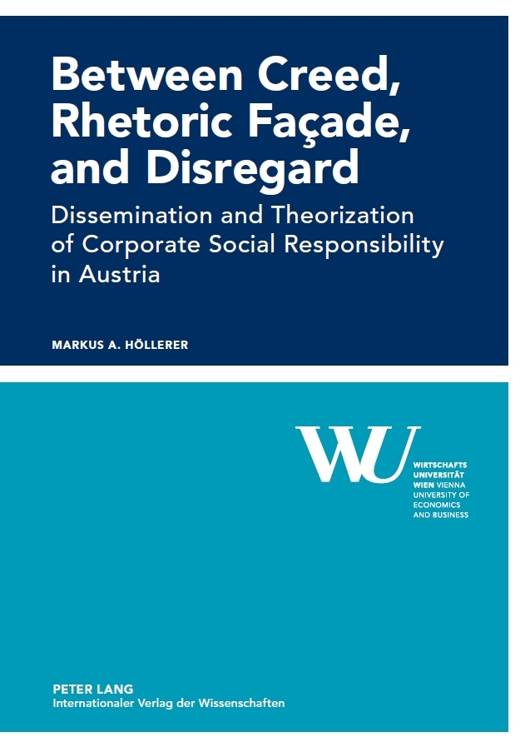
Door een staking bij bpost kan je online bestelling op dit moment iets langer onderweg zijn dan voorzien. Dringend iets nodig? Onze winkels ontvangen jou met open armen!
- Afhalen na 1 uur in een winkel met voorraad
- Gratis thuislevering in België vanaf € 30
- Ruim aanbod met 7 miljoen producten
Door een staking bij bpost kan je online bestelling op dit moment iets langer onderweg zijn dan voorzien. Dringend iets nodig? Onze winkels ontvangen jou met open armen!
- Afhalen na 1 uur in een winkel met voorraad
- Gratis thuislevering in België vanaf € 30
- Ruim aanbod met 7 miljoen producten
Zoeken
Between Creed, Rhetoric Façade, and Disregard
Dissemination and Theorization of Corporate Social Responsibility in Austria
Markus A Höllerer
€ 81,45
+ 162 punten
Omschrijving
Applying the theoretical lens of organizational institutionalism, this study analyzes the spread of Corporate Social Responsibility (CSR) in the Austrian corporate world. The objectives are threefold: First, to explore the institutional framework in place; second, to explain the dissemination of CSR in terms of adopters' characteristics and field-level pressures; and third, to understand the structuring dimensions of meaning within the CSR discourse. The findings demonstrate that a specific sub-population is more inclined to espouse commitment to CSR policies. Against the background of an ambiguous nature and definition of CSR, this study also shows how actor categories and divergent thematic embeddings serve as a basis for the concept's theorization, and elaborates on a distinct constellation of empirical sub-discourses.
Specificaties
Betrokkenen
- Auteur(s):
- Uitgeverij:
Inhoud
- Aantal bladzijden:
- 257
- Taal:
- Engels
- Reeks:
- Reeksnummer:
- nr. 52
Eigenschappen
- Productcode (EAN):
- 9783631619681
- Verschijningsdatum:
- 24/05/2012
- Uitvoering:
- Hardcover
- Formaat:
- Genaaid
- Afmetingen:
- 148 mm x 210 mm
- Gewicht:
- 439 g

Alleen bij Standaard Boekhandel
+ 162 punten op je klantenkaart van Standaard Boekhandel
Beoordelingen
We publiceren alleen reviews die voldoen aan de voorwaarden voor reviews. Bekijk onze voorwaarden voor reviews.











